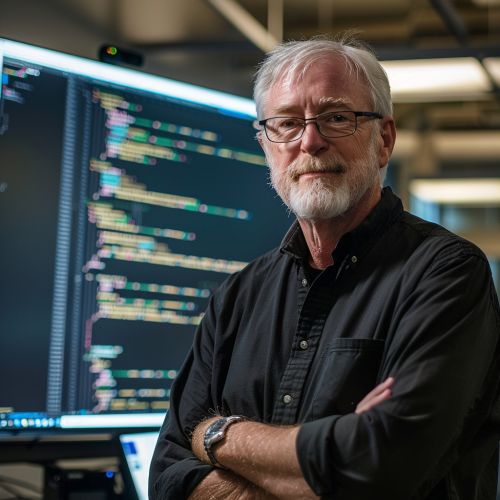Paul Allen
Early Life and Education
Paul Gardner Allen was born on January 21, 1953, in Seattle, Washington. He was the son of Kenneth Sam Allen, an associate director of the University of Washington libraries, and Edna Faye Allen, a teacher. Allen showed an early interest in science and technology, which was nurtured by his parents and teachers. He attended Lakeside School, a private school in Seattle, where he met Bill Gates, who would later become his business partner. Allen and Gates bonded over their shared enthusiasm for computers and programming. They spent much of their time in the school's computer lab, experimenting with various programming languages and systems.
Founding of Microsoft
In 1975, Allen and Gates co-founded Microsoft, originally named "Micro-Soft," a portmanteau of "microcomputer" and "software." Allen played a crucial role in the early development of the company, including securing a deal with IBM to provide an operating system for their first personal computer. This operating system, known as MS-DOS, became the foundation for Microsoft's dominance in the software industry. Allen's technical expertise and business acumen were instrumental in the company's rapid growth and success.
Contributions to Technology
Allen's contributions to technology extend beyond Microsoft. He was involved in the development of several key technologies and innovations. One of his notable achievements was the creation of the Altair 8800 BASIC interpreter, which was one of Microsoft's first products. Allen also played a significant role in the development of the graphical user interface (GUI), which revolutionized the way people interacted with computers. Additionally, he was a pioneer in the field of networking and helped to develop early local area network (LAN) technologies.
Philanthropy and Investments
Allen was a prolific philanthropist and investor. He established the Paul G. Allen Family Foundation in 1988, which has donated millions of dollars to various causes, including education, healthcare, and the arts. Allen was also a major supporter of scientific research, funding projects in fields such as neuroscience, artificial intelligence, and space exploration. In addition to his philanthropic efforts, Allen was an astute investor, with interests in a wide range of industries, including technology, real estate, and sports.
Sports and Entertainment
Allen was an avid sports fan and owned several professional sports teams, including the Seattle Seahawks of the National Football League (NFL) and the Portland Trail Blazers of the National Basketball Association (NBA). He was also a co-owner of the Seattle Sounders FC, a Major League Soccer (MLS) team. Allen's passion for sports extended to his investments in sports-related technologies and facilities, including the construction of state-of-the-art stadiums and training centers.


Legacy and Impact
Paul Allen's legacy is marked by his numerous contributions to technology, philanthropy, and sports. His work at Microsoft laid the foundation for the modern software industry, and his investments in scientific research and education have had a lasting impact on society. Allen's philanthropic efforts have supported countless initiatives and organizations, improving the lives of people around the world. His passion for sports and entertainment has also left a lasting mark on the industry, with his teams achieving significant success and his investments in sports technology advancing the field.
See Also
- Bill Gates
- Microsoft
- Altair 8800
- Graphical User Interface
- Local Area Network
- Paul G. Allen Family Foundation
- Seattle Seahawks
- Portland Trail Blazers
- Seattle Sounders FC
